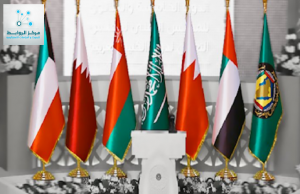By: Shatha Kalel
The upcoming International Investment Summit in London, scheduled for October 14, 2024, marks a significant moment in the United Kingdom’s efforts to strengthen its economic ties with the Gulf Cooperation Council (GCC) countries, particularly Saudi Arabia. This event, chaired by British Prime Minister Sir Keir Starmer, is designed to attract Gulf investments into the UK, with a specific focus on green technology, renewable energy, and advanced manufacturing. The success of this initiative could have profound implications for both the UK and the Gulf region, influencing the trajectory of economic development and international trade in the coming years.
Strategic Importance of Gulf Investments in the UK
The UK’s strategic push to attract Gulf investments is rooted in the new Labor government’s growth strategy, which emphasizes the need to enhance investment opportunities as a cornerstone for economic expansion. For the Gulf countries, particularly Saudi Arabia, this summit presents an opportunity to align their investment strategies with their long-term economic visions, such as Saudi Arabia’s Vision 2030. This vision emphasizes diversification away from oil dependence, with a strong focus on sectors like renewable energy, digital technology, and advanced manufacturing—areas that are also priorities for the UK.
Economic Analysis: Potential Impact on the UK
1. Boosting Green Technology and Renewable Energy: The UK’s focus on attracting investments in green technology and renewable energy aligns with global trends towards sustainability and carbon reduction. If the UK successfully secures substantial Gulf investments in these sectors, it could accelerate the development of the UK’s green economy, create jobs, and position the UK as a leader in sustainable technologies. Additionally, the infusion of Gulf capital could stimulate innovation and infrastructure development, potentially making the UK a hub for renewable energy in Europe.
2. Advancing Digital and Manufacturing Sectors: The UK’s advanced digital infrastructure and expertise in digital manufacturing, including 3D printing, present attractive investment opportunities for Gulf nations looking to modernize their economies. Gulf investments in these sectors could enhance the UK’s global competitiveness in digital industries and support the development of cutting-edge manufacturing technologies. This cooperation could also facilitate the transfer of technology and expertise to the Gulf, supporting their ambitions to diversify their economies and reduce reliance on oil revenues.
Economic Analysis: Potential Impact on the Gulf Region
1. Diversification and Economic Stability: For the GCC countries, especially Saudi Arabia, investing in the UK’s green and digital sectors offers a pathway to diversify their economies and reduce vulnerability to oil price fluctuations. Successful investment in these sectors could provide the Gulf countries with new revenue streams, enhance technological capabilities, and support their domestic economic transformations. This alignment with Vision 2030 and similar national strategies would not only foster economic stability but also promote sustainable growth in the region.
2. Technology Transfer and Capacity Building: The potential for technology transfer is a crucial aspect of this investment partnership. By investing in the UK’s advanced sectors, Gulf countries could gain access to cutting-edge technologies and expertise, which could be crucial in developing their local industries. This would not only accelerate the region’s industrial development but also support the creation of high-skilled jobs, contributing to the long-term economic resilience of the GCC nations.
Future Implications for Regional and Global Relations
If the summit successfully leads to substantial Gulf investments in the UK, it could redefine economic relations between the two regions. The deepening of these ties would likely result in a more integrated economic partnership, with both sides benefiting from shared expertise, technological advancements, and economic growth. Moreover, this collaboration could set a precedent for future international investments, encouraging other regions to engage in similar partnerships that emphasize sustainability and technological innovation.
Conclusion
The International Investment Summit in London represents a pivotal opportunity for both the United Kingdom and the Gulf Cooperation Council countries to advance their economic agendas through strategic investments. The focus on green technology, digital industries, and advanced manufacturing aligns with global economic trends and offers mutual benefits. For the UK, securing Gulf investments could stimulate economic growth and innovation, while for the Gulf countries, this partnership could facilitate economic diversification and technological advancement. The success of these projects could reshape the economic landscape of the region, fostering a more resilient and interconnected global economy.
Economic Implications of the UK-Gulf Cooperation in the Upcoming International Investment Summit
Economic Unit/North America Office
Al Rawabet Center for Research and Strategic Studies

